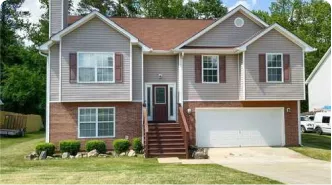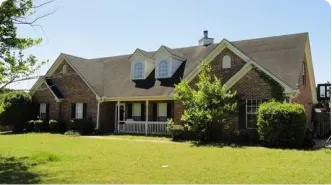Airbnb arbitrage is a growing strategy in the real estate world that allows investors to profit from short-term rentals without owning the property. In simple terms, it involves leasing a property from a landlord, then listing it on Airbnb to earn more from guests than what you pay in rent.
This model is becoming popular because it requires far less upfront capital than traditional real estate investments, making it more accessible to beginners or those looking to expand quickly. With minimal financial risk, Airbnb arbitrage offers a unique way to generate income. In the following sections, we'll dive deeper into the benefits and steps involved.
What is Airbnb Arbitrage?
Airbnb arbitrage is a simple yet effective way to profit from short-term rentals without the need to own a property. In this model, you lease a property from a landlord, just like any regular tenant would, but instead of living there, you sublet it on platforms like Airbnb to short-term guests. The idea is to charge more per night on Airbnb than what you pay in monthly rent, allowing you to pocket the difference.
What makes Airbnb arbitrage stand out from traditional real estate investments is that you don’t need to save for a down payment, deal with mortgages, or worry about property taxes and long-term maintenance costs. Instead, your focus is on finding the right property, furnishing it to attract guests, and managing the rental process. This low-capital approach makes it an attractive option for people looking to dive into real estate without the financial burden of buying a property upfront.
In the next section, we'll break down the benefits of this investment model and show you how it can be scaled quickly and efficiently.
The Benefits of Airbnb Arbitrage
Airbnb arbitrage offers a unique opportunity to earn income through short-term rentals without the need to own property. By leasing a home and renting it out on platforms like Airbnb, investors can enjoy low upfront costs and scalability—benefits that will be discussed in more detail below.
1. Low Upfront Costs
One of the biggest perks of Airbnb arbitrage is that you can break into the real estate market without the hefty price tag of buying property. Instead of needing a down payment or mortgage, your primary costs involve leasing a property, paying a security deposit, and covering essentials like furniture, decor, and licensing fees. It’s a more accessible path for investors who want to start small but dream big. Once you set up the property with amenities like Wi-Fi, smart locks, and comfortable furnishings, you’re ready to start earning, without the heavy financial burden that comes with ownership.
2. High Cash Flow Potential
Airbnb arbitrage is known for its impressive cash flow. By renting properties and listing them on Airbnb at higher nightly rates, you can potentially make significant returns, especially in high-demand areas. What’s great about this model is that it offers a strong cash-on-cash return, meaning your initial investment in setup costs can pay off quickly. With good occupancy rates, many investors see profits much faster than with traditional long-term rentals.
3. Scalability
Another key advantage of Airbnb arbitrage is scalability. Because you’re not tied down with large mortgages, it’s easier to scale your business. You can rent multiple properties in a short time, expanding your portfolio without needing to save for down payments. This flexibility allows for faster growth and the potential to diversify across different locations, maximizing your earnings.
4. Lower Risk Compared to Ownership
Since you don’t actually own the property, you’re shielded from many of the risks property owners face, like market downturns or high maintenance costs. You’re not responsible for real estate taxes or long-term upkeep, which reduces financial exposure. Plus, if a particular property doesn’t perform well, you can walk away at the end of the lease, offering more flexibility and fewer long-term commitments. This makes Airbnb arbitrage a lower-risk investment compared to traditional property ownership.
Steps to Start an Airbnb Arbitrage Business
Starting an Airbnb arbitrage business involves several key steps to ensure success in the short-term rental market. From researching the right market to securing a lease and furnishing the property, each step will be outlined in detail below to help you get started.
1. Researching the Right Market
The first step in Airbnb arbitrage is choosing the right market. Not all cities are created equal when it comes to short-term rental profitability. Use tools like AirDNA to analyze local demand, average nightly rates, and occupancy rates in different neighborhoods. Focus on tourist-heavy areas or cities with strong business travel demand. Additionally, make sure to review local regulations regarding short-term rentals—some cities have strict rules or licensing requirements that could limit your earning potential. Understanding these factors upfront will save you headaches down the line.
2. Securing a Lease and Negotiating with Landlords
Once you’ve identified a target market, the next step is securing a lease. Not all landlords are open to subletting their properties for short-term rentals, so transparency is key. Clearly explain your Airbnb business model and address any concerns they may have, such as property maintenance and guest behavior. You may need to offer added incentives, like a higher security deposit or agreeing to specific terms like regular inspections. Be prepared to negotiate to find a win-win solution for both parties.
3. Setting Up and Furnishing the Property
After you’ve locked down a property, it’s time to make it guest-ready. Furnishing your rental doesn’t have to break the bank, but it does need to be comfortable and stylish to attract bookings. Focus on high-impact items like quality bedding, a fully stocked kitchen, and fast Wi-Fi. Adding thoughtful touches, like smart locks and entertainment subscriptions, can enhance the guest experience. These details not only boost guest satisfaction but also increase your chances of getting 5-star reviews, which are crucial for success on Airbnb.
Challenges of Airbnb Arbitrage
One of the key challenges of Airbnb arbitrage is that, while it offers strong cash flow, it doesn’t help you build equity. Unlike owning a property, where you can benefit from long-term appreciation and growing value, Airbnb arbitrage is more about short-term profits. Since you don’t own the property, there’s no asset increasing in worth over time. This means the money you make is immediate but doesn’t contribute to long-term wealth building.
Another significant challenge is finding landlords willing to participate. Many landlords are hesitant about subleasing their property for short-term rentals due to concerns about potential damages, increased wear and tear, or complaints from neighbors. To overcome this, it’s important to approach landlords with a solid proposal. Highlight the benefits, such as guaranteed rent payments and your commitment to maintaining the property. Offering higher security deposits or agreeing to regular property inspections can also help reassure them and make your case stronger.
Legal Considerations
When diving into Airbnb arbitrage, understanding local laws is a must. Short-term rentals are regulated differently depending on the city, state, or country, so knowing the legal landscape will save you from costly headaches later. Many areas require specific permits, impose taxes, or have restrictions on how often a property can be rented out. Ignoring these regulations could lead to fines or even the loss of your ability to rent the property.
To help you navigate, here’s a quick checklist of legal aspects to consider before starting your Airbnb arbitrage business:
- Check Local Short-Term Rental Laws: Are short-term rentals allowed in your area? Are there any restrictions?
- Permits & Licensing: Does the city require a permit or license to operate an Airbnb?
- Taxes: What taxes are involved? Look into occupancy or hotel taxes that might apply.
- Lease Agreements: Ensure your lease explicitly allows subletting for short-term rentals.
- Homeowner Associations (HOA): Are there any HOA rules prohibiting short-term rentals in the building or community?
- Insurance Requirements: What insurance coverage is required for short-term rental properties?
- Occupancy Limits & Safety Regulations: Be aware of the maximum guest capacity and safety codes (e.g., fire exits, smoke detectors).
By ticking these off your list, you’ll have a solid foundation for a legally compliant Airbnb arbitrage business!
The Bottom Line
Airbnb arbitrage offers a fantastic opportunity for investors looking to enter the real estate market without the hefty upfront costs of purchasing property. With low initial investment, the potential for high cash flow, and the ability to scale quickly, this model provides a flexible and accessible way to generate steady income. Plus, the reduced risk of property ownership makes it an appealing option for those who want to avoid long-term market fluctuations or major maintenance expenses.
If you’re looking for a smart, scalable way to profit in real estate, Airbnb arbitrage might be the perfect strategy to explore!
.svg)













%201.webp)
%203.webp)



%201.webp)
.webp)


